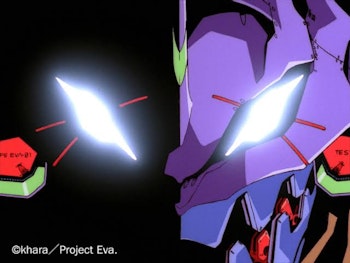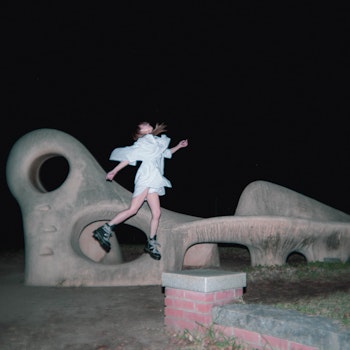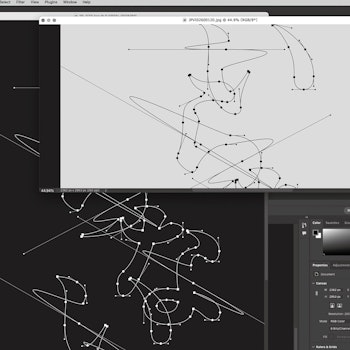
The defining characteristic of modern J-pop is how undefinable it has become. Explore the YouTube trending page or Spotify Top 50 or even the Billboard Japan rankings and you’ll be presented a myriad of sonic ideas bouncing off one another. Some of 2024’s biggest hits include Jersey Club workouts, math-rock indebted anthems, Vocaloid trip outs and vulnerable guitar ballads, and that’s just a small sampling.
Electronic collective PAS TASTA’s second album GRAND POP fits in perfectly to this eclectic ecosystem. The project unites producers hirihiri, Kabanagu, phritz, quoree, Amane Uyama and yuigot, all of whom are closer to the madcap world of netlabels than the J-pop industry. On 2023 debut GOOD POP, they nodded to their web-origins by smashing styles together while pulling catchy choruses out of the chaos. Yet for all the oddball touches, that full-length also served as a overview of modern Japanese music, both through its sonic palette and its guest vocalists, ranging from singer-songwriters to hyperpop disruptors to a virtual YouTuber. That reads as bonkers — but then again, that’s J-pop in the 2020s.
GRAND POP raises the stakes. The guests are bigger, the hooks catchier, and the whole presentation sees PAS TASTA push closer to the center of J-pop without losing the absurd glee that made GOOD POP one of last year’s best releases.
Underlining all of this is the album’s central theme. GRAND POP takes shape around cars and the experience of driving, one of the absolute best settings to listen to music. PAS TASTA embrace propulsion here, and lean more into elements of rock —an ideal genre for any automobile and the sonic bedrock of J-pop. That’s clear out the gate on “BULLDOZER+,” a guitar-based rush speeding to a scream-a-along hook about leaving it all behind with pit stops for EDM and metal breakdowns. Touches of rock appear along the corners of the dancier cuts, blurring together to further up the energy. The whole album ends with its most straight-up rocker “The Car,” which simmers in emo before building up to a cathartic blow out.
Despite an even greater emphasis on guitar, PAS TASTA’s sonic curiosity remains prominent across its second album. The group constructs burbling funk over which guest vocalist Satoko Shibata navigates on “My Mutant Ride” (with bonus assist from producer Taku Inoue), while laying down a swift beat on “byun G” that rappers JUMADIBA and LIL SOFT TENNIS can weave through. There’s a playfulness on GRAND POP too, best captured by the all-gas-no-brakes pace of “Tenei,” which throws rap duo chelmico into a whirlwind originally envisioned as “Muji at 200 BPM,” referring to a souped-up version of Euro-tastic soundtracks played inside said brand’s stores.
For all of the sonic turns PAS TASTA make, GRAND POP isn’t a detour away from modern pop. Sure, hearing the computer-synthesized voice of Hatsune Miku sing about the dangers of hyper consumption set to a clanging pots-and-pans beats doesn’t scream “J-pop.” Yet “B.B.M.” featuring Vocaloid artist Pinocchio P absolutely does match the musical moment in the country, from its use of Miku’s digi-delivery to its electronic cacophony even to the lyrics, which are not far from the societal inquisitions of top-level acts.
GRAND POP presents PAS TASTA as kind of an inverse version of acts like Mrs. GREEN APPLE or Sekai No Owari. Those bands center the overly saccharine and familiar structures in their songs but allow weirder production details in around the edges, whether via splashes of Auto-tune and machine percussion from the prior or flirtations with EDM and hip-hop from the latter. For the six self-described “sound geeks” in PAS TASTA, making interesting music eager to avoid cliche comes first, but within the whizz-bang structure sits a pop engine powering it forward.
“ISEWAN” featuring artist Ryujin Kiyoshi starts as the most accessible number the group has ever been involved in, but slowly they pick the tempo up on this otherwise dreamy slice of swaggering funk-pop to give it a hyper edge. Better still is “Atokyo” with Tatsuya Kitani, the biggest guest name present. Built around his guitar flurry, PAS TASTA’s electronic touches come in deeper — a digital burble here, and mutated vocal there — but works along with Kitani’s approach to add extra texture to the tune. It’s familiar…but also not quite what you expect.
There’s a clear ambition fueling GRAND POP, to go further (hell, it’s right there in the name!). PAS TASTA don’t shift gears to adjust to J-pop, though, because the project has always been on top of what has bubbled up to the internet-facing mainstream of the 2020s. They remain as playful and hard to pin down as before, which is totally in tune with what’s happening around them, making GRAND POP less of an outsider and rather one of the year’s best surveys of the Japanese sonic landscape.










